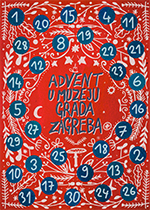Zagreb City Museum, guest appearance in History Museum of the City of Moscow
Exhibition concept: Željka Kolveshi
Multimedia: Maja Šojat-Bikić, MSc
Exhibition design: Željko Kovačić
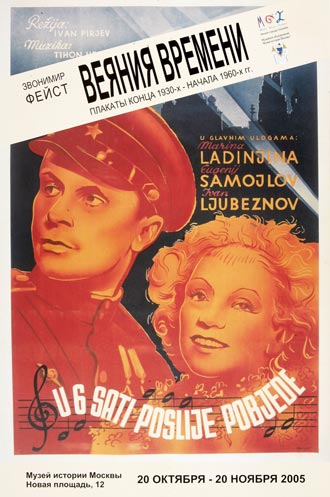 This exhibition introduces the work of Zvonimir Faist, an author only slightly known in circles of investigators of the history of the poster in Croatia. In front of me lay a task the objective of which was the creation of an exhibition to let his work be exhibited to the critical evaluation of both experts and the general public.
This exhibition introduces the work of Zvonimir Faist, an author only slightly known in circles of investigators of the history of the poster in Croatia. In front of me lay a task the objective of which was the creation of an exhibition to let his work be exhibited to the critical evaluation of both experts and the general public.
In the definition of the conception of the exhibition, several of the generative elements taken into consideration were: the poster as urban phenomenon reflecting the atmosphere of life in Zagreb in the time from the late 1930s to the early 1960s; giving a proper evaluation to the poster in the artistic and cultural history context of the time; the meaning of »oral history« for the historical background of the project, based on the recordings of the author’s narratives; the extant copies of film posters from the late 1930s to 1945 done by hand with mixed media, something of a rarity in museum collections; the presentation of the commercial poster of the 1950s as faithful picture of the standard of living of the society, which has until recently been avoided; and finally, the artist himself, Zvonimir Faist, whose work definitely needs to be known.
For this reason the conception of the exhibition has two poles. The first aim, through the hanging of more than 76 posters, selected by the deviser of the exhibition, was to show Zvonimir Faist as artist, as painter who made the choice to work only in the field of poster and other graphic advertising material design. Looked at from this aspect, the exhibition is retrospective, as well as collective, as it would have been called at the time when Faist took his degree at the Art Academy in Zagreb, in 1935, and has the character of an art exhibition. The exhibition’s second pole is defined by the interpretation of the media message of the poster, where the author figures in the role of witness of the time, creating, according to the dictates of the time, and looked at from this aspect, it has the character of an exhibition from the field of culture studies. Appropriate to the conception, the exhibition runs in a chronological sequence, in which the posters are grouped according to period and the surrounds in which they were created, while the themes convey the dictates of the time.
An important segment of the exhibition consists of the computer installations. On the first one can look through the Life of Zvonimir Faist in a Photographic Album, and one is able to choose audio and visual material as well. The commentary on the photographs consists of Faist’s authentic words, and at the exhibition the live pictures shot in the summer of 2003 link the author as he is today with his works from the past. The second installation gives a selection from a great many small graphic advertising materials for a variety of products, originally kept in the author’s album, and hence at the exhibition they are shown by a project in the »shop front« of the Narodni Magazin. On the third it is possible to follow all the film posters from the exhibition with a parallel sequencing of photographs from actors from these films, often constituting the background for the composition of the poster of the film. The fourth computer installation is a real database for film fans, which, at a higher level, gives the possibility to browse for all data about films for which Faist did the posters. Their origin and contents also tell us about the dictates of the time.
The exhibition is accompanied by a poster in which I convey the results of my research, according to which the place and contribution of Zvonimir Faist in any review of applied graphic design in Croatia will be determined. The title of the exhibition, Dictates of the Times, is woven into all the aspects of this project, and hence includes the approach to the design of the catalogue, with a front cover on which, in four variants, four different posters characteristic of the times in which they were created appear, repeated on the invitation and in the poster for the exhibition. We hope that this will be intriguing, will prompt interest and lead to questions about the possible contents of the exhibition. Similarly, I believe that the exhibits at the show will give answers, and clearly and convincingly remind everyone of part of his own history. The lifetime of the poster is brief – poster is quickly replaced by poster, and thus historical landscape of the street is changed. At the exhibition in the Museum, a picture of an imaginary historical landscape is created, in which the posters have become symbols of the time.
Željka Kolveshi
Pictures from the exhibition
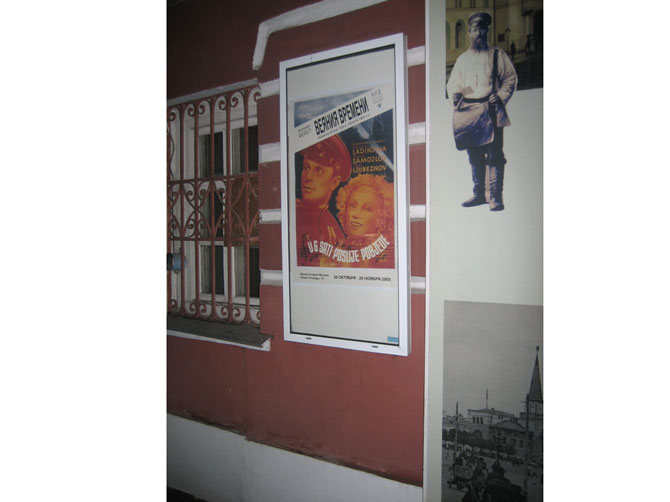
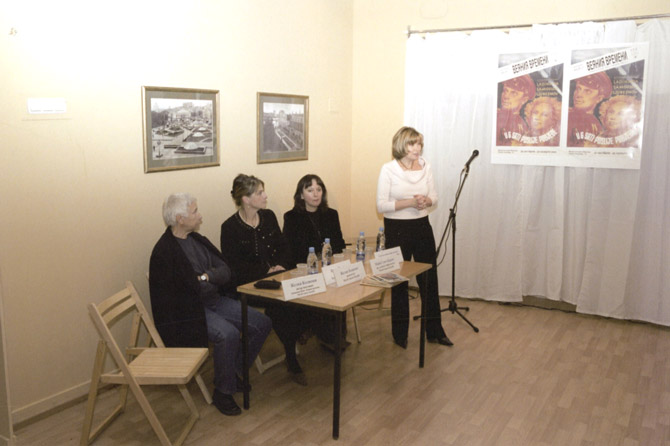
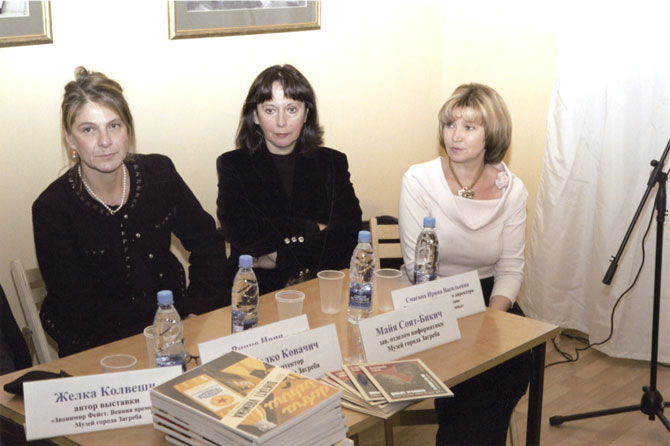
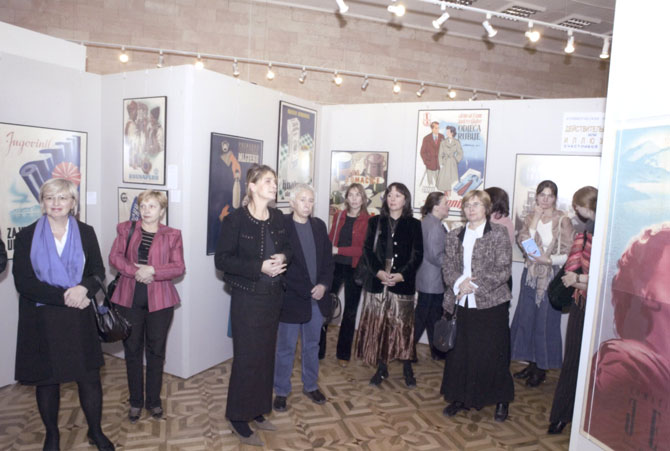
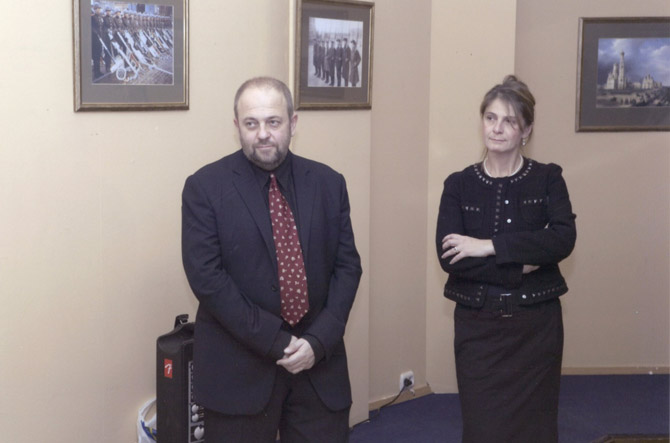
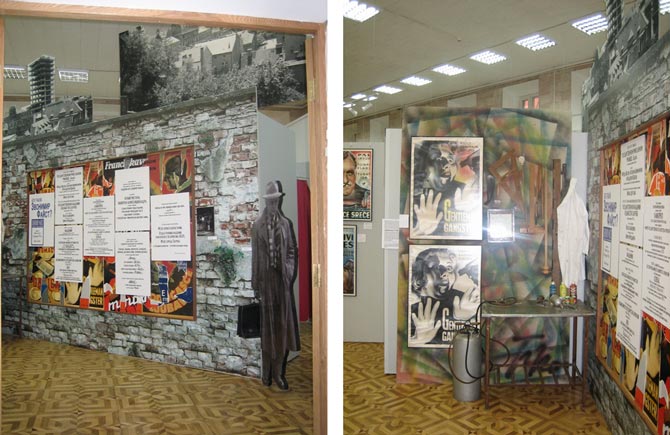
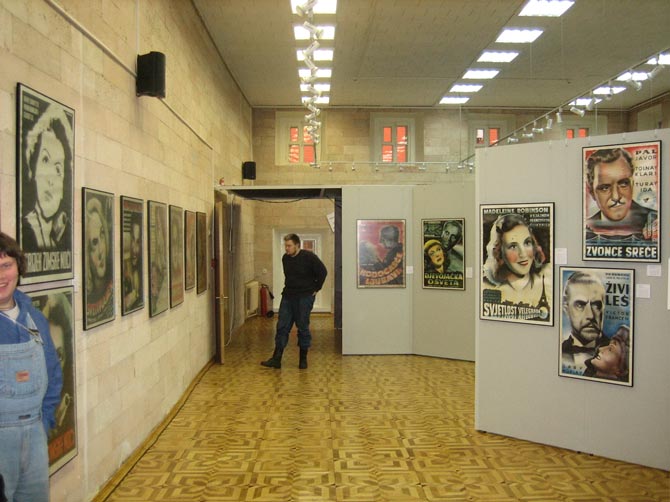
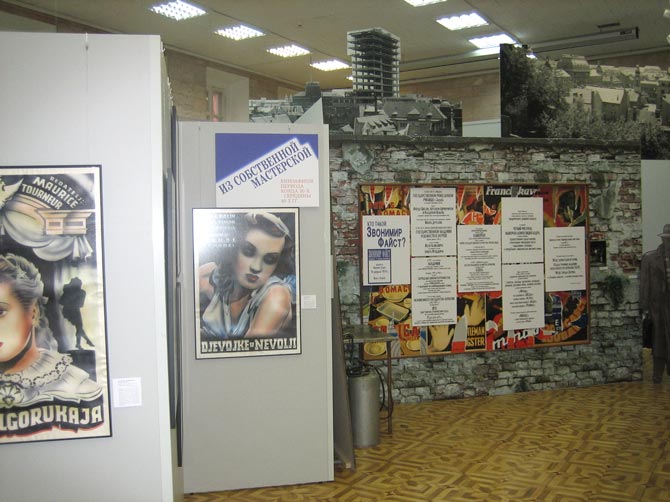
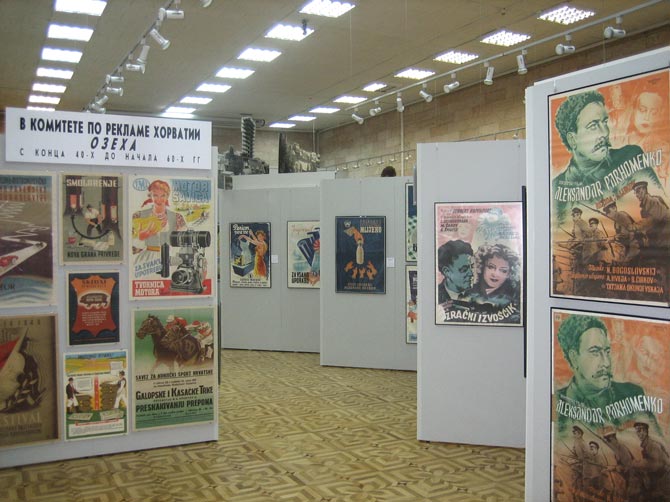
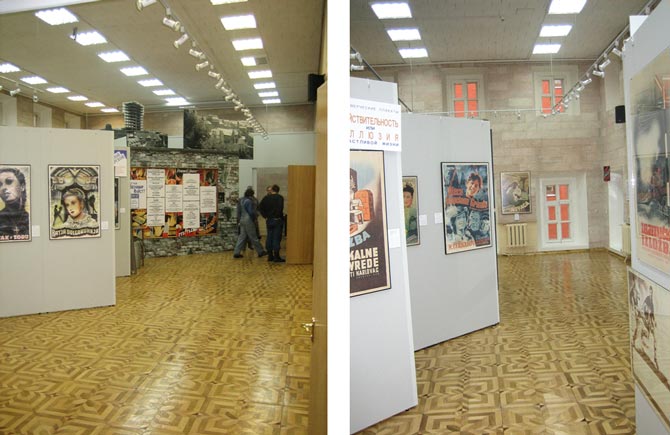
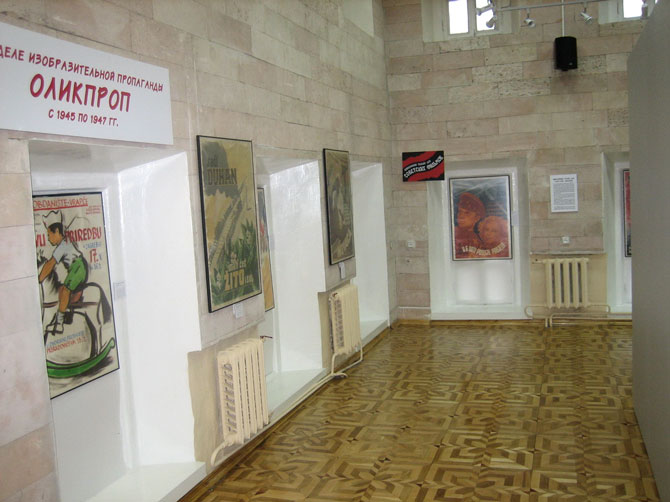
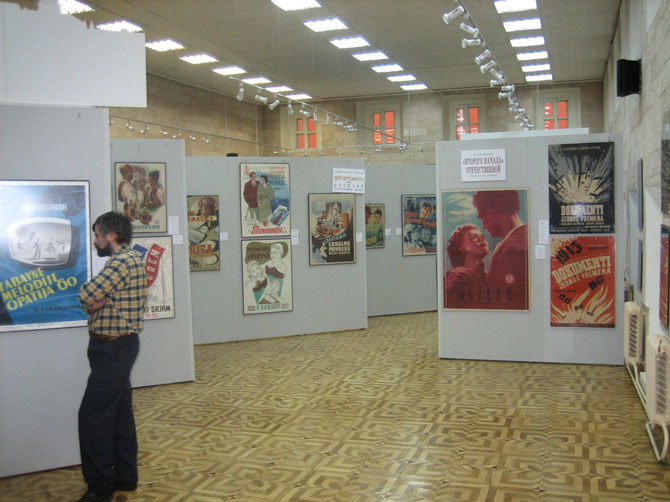
.jpg)
